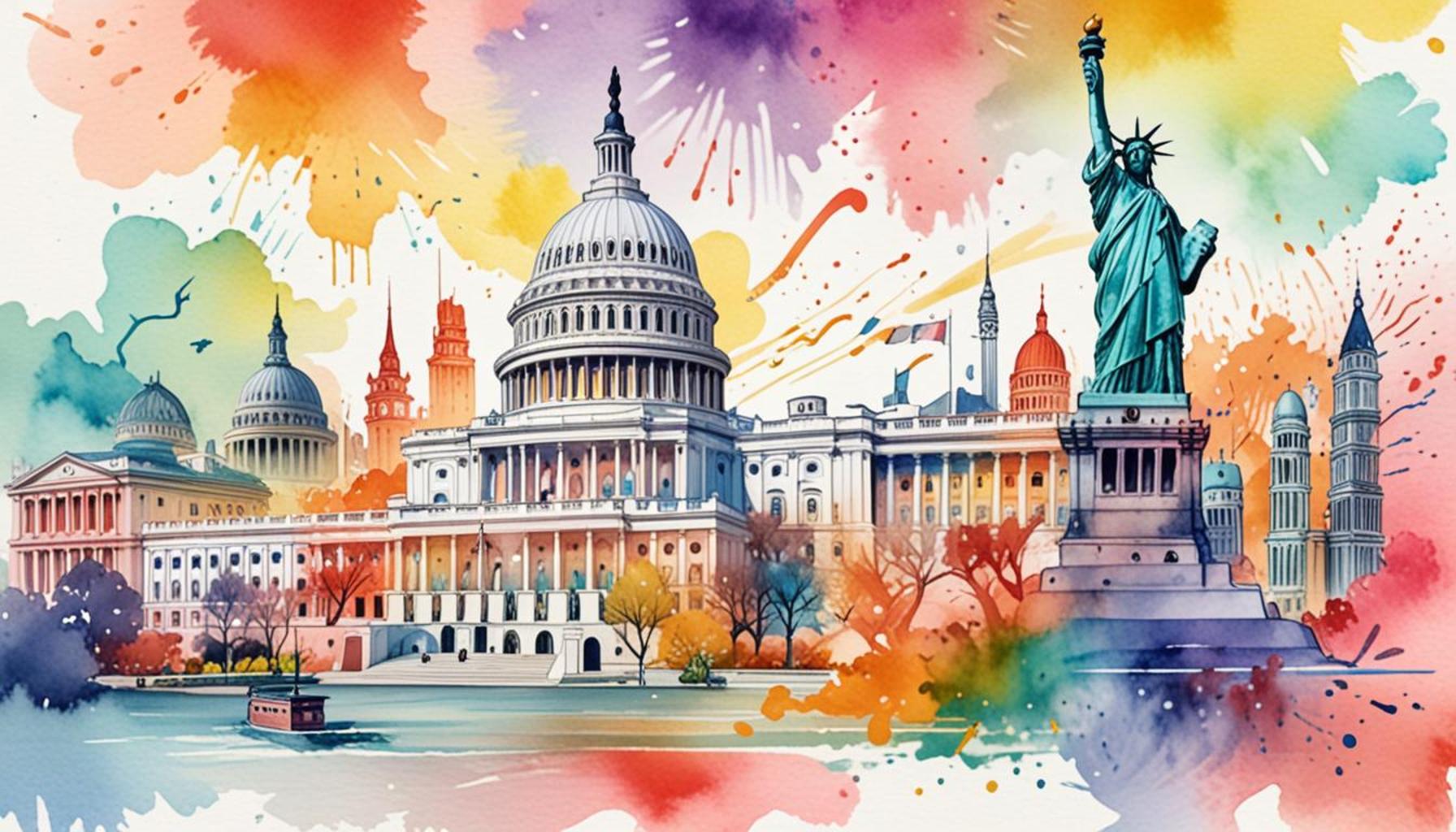The Impact of Government Benefits on the Expansion of Brazilian Foreign Trade

Exploring the Dynamics of Government Benefits in Brazilian Trade
The intricate relationship between government benefits and Brazilian foreign trade has undergone significant scrutiny in recent years, revealing a nuanced landscape that could impact both local industries and international trade partners. The way in which these benefits influence trade expansion can offer profound insights into the evolving Brazilian economy and its positioning in the global market.
Export Incentives Driving Growth
The Brazilian government has implemented various export incentives aimed at stimulating national businesses to venture into international markets. These incentives commonly manifest as tax reductions, financing options, or subsidies, making exports more profitable. For example, specific sectors, such as agriculture, have benefitted from policies that offer reduced tax rates on export revenues, thereby enhancing their competitive edge on the global stage. Brazil, being one of the leading exporters of agricultural products such as soybeans and coffee, exemplifies how effectively structured government support can boost an industry’s output and visibility.
The Role of Import Tariffs
On the flip side, import tariffs are a crucial element in Brazil’s trade policy, designed to protect local industries from foreign competition. By imposing tariffs on imported goods, the government aims to nurture domestic production, but this can also lead to higher prices for consumers. For example, significant tariffs on electronics have encouraged local manufacturing yet limited access to diverse foreign products. Hence, the delicate balance between protecting local industries and fostering competition remains a vital conversation among policymakers and economists alike.
Trade Agreements: Building Bridges
Trade agreements play a pivotal role in enhancing Brazil’s foreign trade relations. Bilateral agreements with nations such as the United States and those within the MERCOSUR bloc open up channels for increased trade and investment. These partnerships not only facilitate a smoother export-import process but also create opportunities for knowledge exchange, technological advancements, and improved supply chains. The recent trade negotiations with the EU highlight Brazil’s strategic importance in global trade initiatives, showcasing how diplomatic efforts can yield beneficial economic outcomes.
Government Interventions and Their Impact
A crucial element in understanding Brazil’s trade dynamics is the evaluation of government interventions, which can shape international trade trajectories. Statistics indicate that government funding programs have significantly boosted investments in technology and infrastructure, further facilitating trade processes. Additionally, Brazil has seen a surge in foreign investment across various sectors, attributed largely to its attractive market conditions and the promise of dividends for international investors.
As the global market continues to intertwine, comprehending how government policies forge the path for Brazilian international trade is fundamental. This exploration illuminates both the challenges faced by local businesses in a competitive landscape and the vast opportunities brought about by a well-crafted governmental approach. In a world characterized by rapid economic changes, staying informed about these dynamics is pivotal for anyone keen on understanding Brazil’s positioning in the global economy.
LEARN MORE: This related article may interest you
Unveiling the Power of Export Incentives
The Brazilian government has long recognized the necessity of export incentives as a strategy to enhance its presence in global markets. These incentives play a pivotal role in transforming the landscape of Brazilian foreign trade, propelling businesses to explore opportunities beyond national borders. For instance, programs designed to offer tax breaks and subsidies for exporters have been implemented, granting local companies the resources and confidence needed to compete internationally.
One noteworthy benefit is the Reintegra program, which aims to reimburse export companies for some of the taxes paid on inputs, ultimately making it more financially viable for goods produced in Brazil to reach global consumers. This initiative has sparked significant growth in sectors such as manufacturing, where companies can reinvest savings into research and development or scaling operations. The emphasis on stimulating exports through financial mechanisms reveals a roadmap for policy-driven trade growth that could serve as a model for other emerging economies.
A Case Study: The Agro-Export Boom
The impact of these incentives is particularly evident in Brazil’s agricultural sector, where exports have skyrocketed over the past decade. Consider the following:
- The country is the world’s largest exporter of soybeans, with government programs facilitating production and shipping to countries like China and the United States.
- Brazil’s coffee exports remain robust, benefitting from both tax incentives and supportive trade policies that encourage quality and quantity.
- Specialized export financing options help local farmers secure the necessary capital to enter international markets, thus enhancing overall productivity.
Such sectors highlight how government intervention can lead to remarkable financial outcomes and improve the global standing of Brazilian products. However, it also raises questions about the long-term sustainability of relying on government benefits as a crutch for growth. An intriguing juxtaposition emerges as policymakers must consider not only immediate gains but also the potential risk of market distortions or dependency, raising debates about the wisdom of prolonged government support.
Addressing the Challenges Ahead
While government benefits have undoubtedly catalyzed growth, they must be accompanied by compatible regulatory frameworks to maximize efficacy. There is a pressing need for Brazil to address inefficiencies in bureaucracy that can impede the export process. For instance, cumbersome customs regulations and logistics challenges can counteract the effects of financial incentives. Thus, fostering a cohesive ecosystem that includes health regulations, environmental policies, and trade facilitation is essential for maximizing the benefits of these governmental interventions.
As Brazilian stakeholders delve deeper into international markets, understanding the implications of government support on foreign trade becomes crucial. The conversation surrounding benefits raises vital questions about balancing competitiveness and innovation against the backdrop of global economic shifts. Thus, the quest for knowledge around these issues is not merely academic; it promises to shape the future direction of a significant player in the international trading arena.
| Advantage | Description |
|---|---|
| Increased Export Incentives | Government programs offering tax exemptions and subsidies stimulate Brazilian companies to expand their export capabilities. |
| Improved Access to International Markets | Benefits such as trade agreements help local businesses penetrate new markets, enhancing global competitiveness. |
| Financial Support for SMEs | Government loans and grants provide essential support for small and medium-sized enterprises to participate in foreign trade. |
| Innovation and Technology Adoption | Subsidies stimulate innovation within Brazilian industries, leading to higher quality products that can compete internationally. |
Exploring the dynamics of government benefits reveals their crucial role in shaping the landscape of Brazilian foreign trade. These initiatives do not only create a more favorable trading environment but also pave the way for businesses to innovate and adapt, as they learn to navigate global challenges successfully. As businesses respond to these advantages, the overall economies that hinge on exports experience significant growth, showcasing the interconnectedness of government action and commercial success on the international stage. The result is a robust and competitive export sector that aligns with Brazil’s economic ambitions.
CHECK OUT: Click here to explore more
Navigating the Landscape of Trade Agreements
In addition to direct export incentives, Brazil’s government benefits extend into the realm of trade agreements, which have been crucial in shaping the country’s foreign trade landscape. These agreements not only reduce tariffs but also create a framework where Brazilian products can penetrate new markets more effectively. The recently updated Mercosur trade bloc, which includes Argentina, Paraguay, and Uruguay, has opened doors for Brazilian goods to access the European Union and other economies with lower barriers.
Such trade pacts foster a climate where exports are not merely a response to global demands but are significantly driven by favorable conditions and government backing. For example, a historic trade agreement between Mercosur and the European Union, signed in 2019, is expected to enhance Brazilian beef and poultry exports to Europe. This maneuvering reflects a reliance on governmental strategy to tilt the scales in favor of local products.
The Role of Digital Innovation in Trade Expansion
An interesting facet of Brazil’s strategy rests in digital innovation aimed at improving export capabilities. The government has invested in technology platforms that provide exporters with valuable market intelligence, helping them understand consumer trends and preferences abroad. The use of big data analytics tools enables Brazilian businesses to tailor their offerings to appeal specifically to foreign consumers, thereby increasing their competitiveness.
Additionally, the emergence of e-commerce as a significant player in international trade allows Brazilian companies to reach audiences that were previously inaccessible. Platforms such as Alibaba are increasingly important for smaller exporters, who can now sell their products directly to consumers across the globe, benefiting from streamlined government-backed logistics and shipping solutions. This shift underscores how government benefits act as a catalyst for small and medium-sized enterprises to engage in foreign trade.
The Human Factor: Workforce Development Programs
Underpinning the success of government benefits in stimulating foreign trade is the aspect of workforce development. Brazil’s educational institutions increasingly collaborate with private sectors to enhance skills relevant to international trade, including language proficiency and technical knowledge in export processes. Initiatives like the Brazil Trade Academy, which provides training in export best practices and trade regulations, help ensure that the workforce is equipped to handle competitive pressures.
This investment in human capital not only prepares a talent pool capable of negotiating and navigating international markets but also strengthens the internal ecosystem of Brazilian exports. The combination of skilled professionals and strategic government support promotes an environment ripe for growth, but it demands ongoing commitment from both the government and private sectors to sustain momentum.
Evaluating the Future of Government Benefits
As the Brazilian government continues to refine its landscape of benefits aimed at boosting foreign trade, there is an ongoing discussion about adaptability and sustainability. With shifting global economic dynamics, Brazil stands at a crossroads where policymakers must consider both the impact of existing incentives and the potential need for restructuring these supports to ensure long-term viability in international markets.
Awareness and flexibility are crucial. For instance, as climate change takes center stage in global trade discussions, the government may need to reconsider agricultural subsidies in light of environmental sustainability, prompting Brazilian exporters to innovate further. This consciousness reflects a broader dynamism in the relationship between government benefits and foreign trade, suggesting that the impact of these interventions is not simply a narrative of growth but one of continuous evolution.
YOU MAY ALSO LIKE: Read read another article
Conclusion: A Dynamic Interplay of Support and Growth
The intricate tapestry of Brazilian foreign trade is undeniably woven with the threads of government benefits that have played a pivotal role in its expansion. From trade agreements that diminish barriers and enhance market access, to the integration of digital innovation and e-commerce platforms, Brazil has strategically positioned itself to thrive globally. The government’s backing not only stimulates exports but also shapes a competitive landscape where Brazilian products can meet international demands.
Moreover, the emphasis on workforce development underscores a commitment to equip Brazilians with the necessary skills to excel in global markets. This commitment extends beyond immediate trade goals, aiming for sustainable economic growth that adapts to changing global dynamics. As Brazil continues to refine its approach—addressing issues such as environmental sustainability and digital transformation—the dialogue on government support becomes increasingly essential.
Looking ahead, the future of Brazil’s foreign trade will hinge on its ability to remain dynamic and responsive to both domestic and international challenges. The government’s role as a facilitator of trade must evolve, recognizing the symbiotic relationship between policy, market forces, and innovation. Continued investment in export strategies, aligned with global demands, will undoubtedly bolster Brazil’s position in the international arena.
In conclusion, the impact of government benefits on the expansion of Brazilian foreign trade goes beyond mere statistics; it represents a strategic initiative that fosters resilience and adaptability. As the landscape of global trade continues to shift, Brazil must leverage these interventions to not only grow but also thrive in the complexities of the international market.


